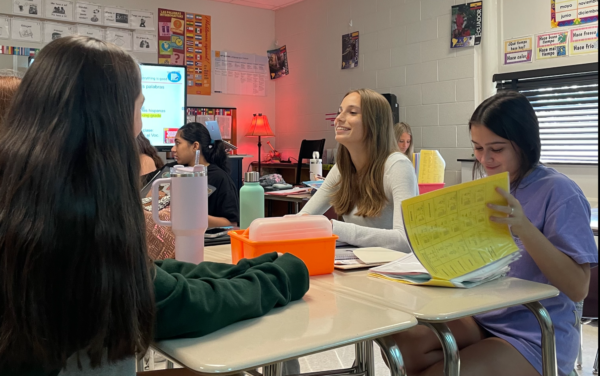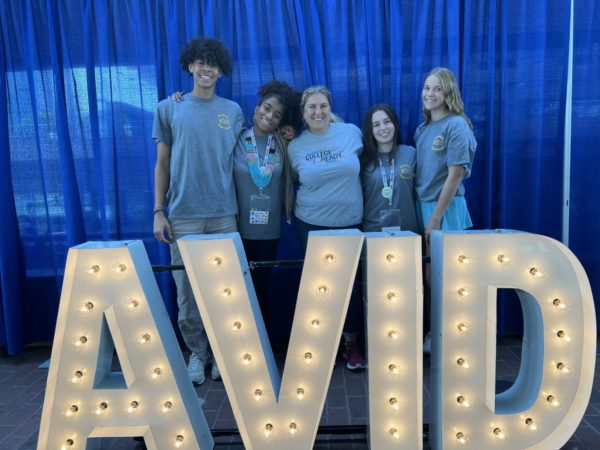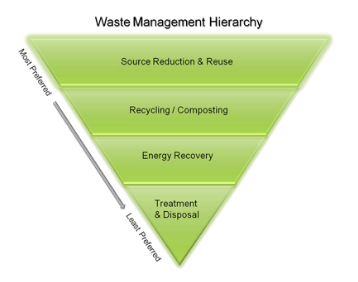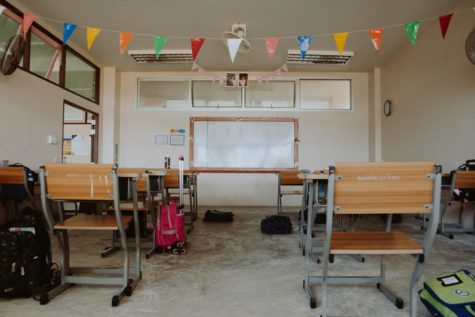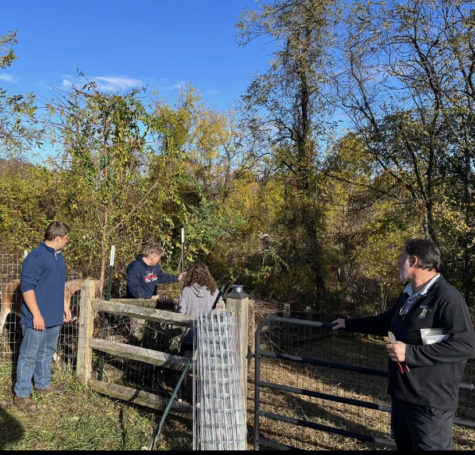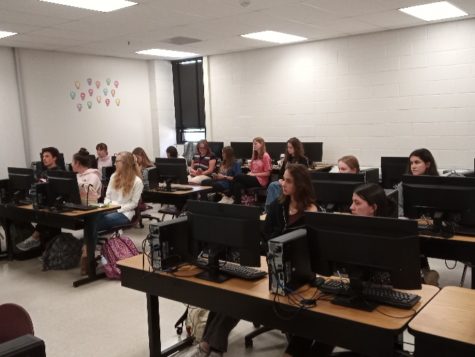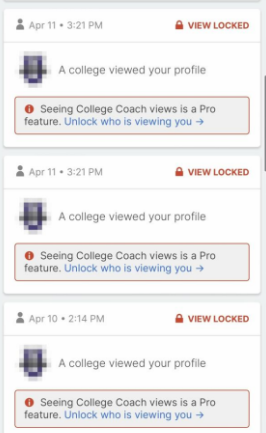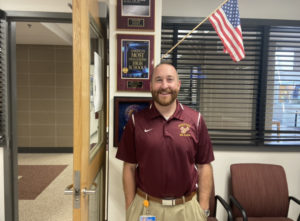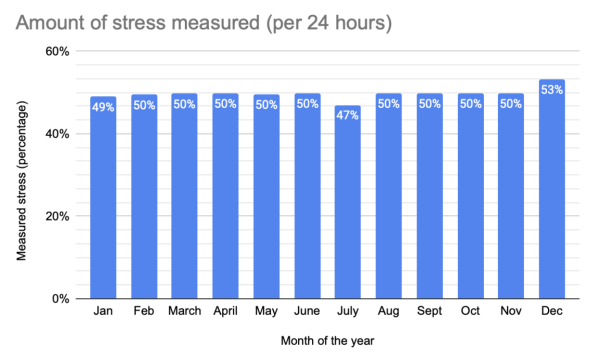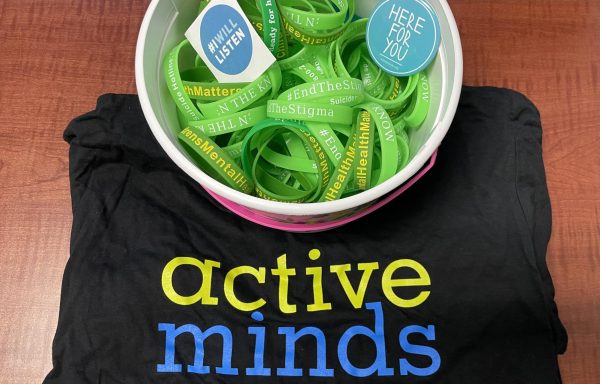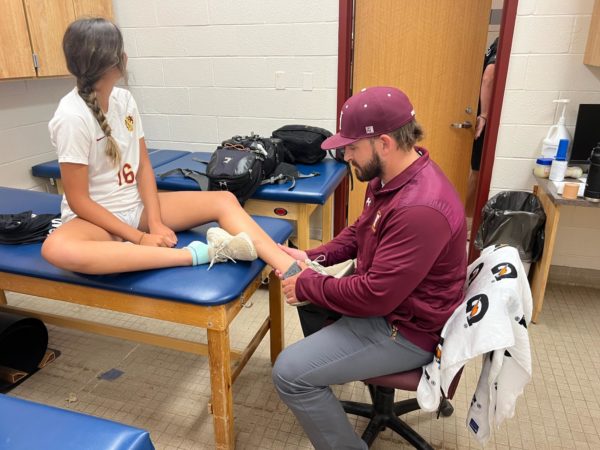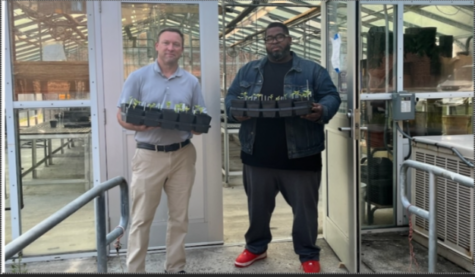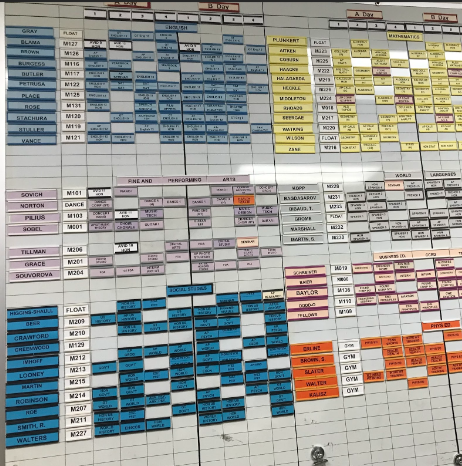BCPS funds additional counseling support
December 6, 2018
With all the new changes this year, including new lockers, new bell schedule, and new homerooms, there is one new aspect you may have overlooked: a new full-time psychologist. While those adjustments are unique to Hereford, the requirement of a full-time psychological service provided by a certified psychologist is a requirement in all Baltimore County Schools. In previous years, we have had a part-time psychologist who was at the school on select days.
In BCPS Policy 5430 it states that The Board believes that “a comprehensive continuum of psychological services, provided by highly qualified school psychologists, is essential to addressing the educationally relevant learning, behavioral, and mental health needs of all students.”
This year we welcome the new school psychologist, Tina Wachter to Hereford. Wachter is a Nationally Certified School psychologist. She discovered an interest in psychology after taking a high school psychology class. After high school, Wachter decided to continue down the psychological services path and studied in the undergraduate program at Towson University where there was a clinical psychology concentration curriculum. In the curriculum, the aspiring psychologist majored in psychology while specializing in clinical psychology. The clinical psychology concentration requirements included an internship in which she was placed in The Forbush School in Sheppard Pratt.
“I was in these classrooms and I was supporting those students in behavioral and emotional needs and such,” Wachter said. “They allowed me to review the record for the kids that I was working with, so I’m looking through their histories and their reports and so forth and I saw ‘school psychologist’ on one of their reports, so I looked that up and [thought] ‘its school and its psychology and that’s where I need to go’.”
Wachter then discovered Towson had a school psychology program and stayed for another three years. For the previous 16 years, she worked in Harford County, mostly in elementary schools. Wachter did spend seven years with a high school but split her time between the high school and two elementary schools.
“This is new and exciting for me to be just in one building,” she said. “And to be able to [appreciate] everything that is already here and be a part of that.”
Going from working at three schools to one school can take some adjusting.
“I’m figuring out what supports are already here, at Hereford, so I can figure out where I can plug in and help with support and build on what’s already here.”
Lauren Rasmussen (’20) had an idea of creating an informational club surrounding mental health and is working to put her words into actions.
“It’s become such a prominent issue in our generation and yet it’s still so misunderstood and stigmatized. Mental health is about so much more than just depression and anxiety, but those are the two most ‘publicized’ disorders,” Rasmussen said. “There are so many other issues that need to be brought to light and I’d like to help educate people on what these are and what they can do to help.”
Rasmussen isn’t the only one who had this idea. Social worker, Molly Esworthy said a different student had approached her with a similar concept.
“It tells me we’ve made some sort of stride in bringing awareness to the fact that mental health is a big deal and that it’s something that is okay to talk about, and it’s something that is so treatable,” Esworthy said. “If we were able to break that stigma down, we could move forward even more with it.”
Both class president, Brooke Wilson (’20) and 12-year AP and abnormal psychology teacher, Robert Greenwood, agree that students need to know that this resource is available to them.
“When help is readily available, people are less likely to feel isolated asking for help and will be less stressed about getting the help they need. It makes it feel more ‘mainstreamed’,” Wilson said. “Hopefully it can become something that people feel more comfortable knowing that there is always help available.”
Esworthy believes that using the word “club” almost sounds too joyous and it doesn’t convey the severity of the issue. Instead, she suggested a student advocacy group.
“More of a group that is going to raise awareness and bring speakers in, reach the community, like a real psychological-social work kind of thing rather than ‘a club’,” Esworthy said. “Bringing the idea of mental into climate lessons that we could use in our homerooms, so we have this eight-minute block of time that catches every single student and every single staff member every day. If we could imbed small pieces of mental healthiness, we could then have every student impacted.”
In all health classes, Adolescence Depression Awareness (ADAP) is delivered to students. Hereford was the school who started ADAP and now it is going into the health curriculum in schools across the county.
Not only are students being informed on the severity of mental health issues, but parents, teachers, school staff and interested community members were too. On Thursday, September 27, Dr. Karen Swartz, Director of Clinical and Educational Programs at the Johns Hopkins Mood Disorders Center, came to talk about mental health. Specifically, about depression signs and symptoms and suicide prevention.
Dr. Swartz discussed how the Netflix Original Series, 13 Reasons Why, did not impact its viewers positively. She mentioned how it demonstrates an unrealistic example of teenagers suffering with mental illnesses and depression who go to their school resources, but the resources say they can’t help, leaving them to deal with it themselves.
Abby Kink (’19) a leader of Tranquility Club said in the club they participate in different activities such as, yoga, aromatherapy, and meditation to relieve the stress of students.
“[Having a psychologist] will enhance [the club], because having somebody that is an expert on anxiety would probably encourage students to join a club like Tranquility Club,” Kink said. “There is a lot of natural ways that you can help yourself.”
Esworthy believes it is important to mention mental health awareness in the school progress plan.
“Our climate goal surrounds belongingness and relationships and having every student connected,” Esworthy said. “That connection could be playing a sport, being involved in music or a club. Having a teacher that you just get along with and knowing that you have somebody in this building that gets you.”




